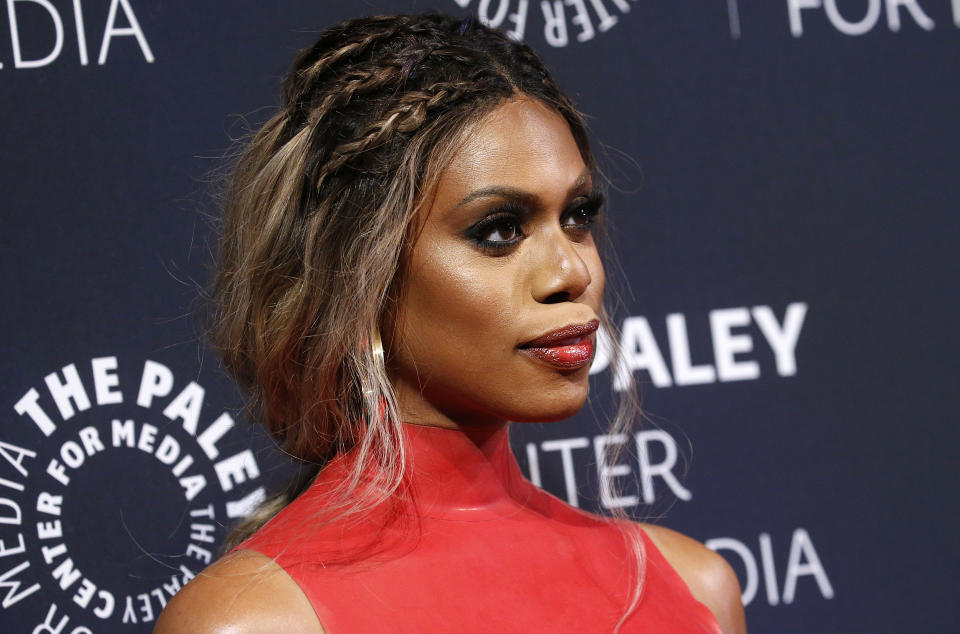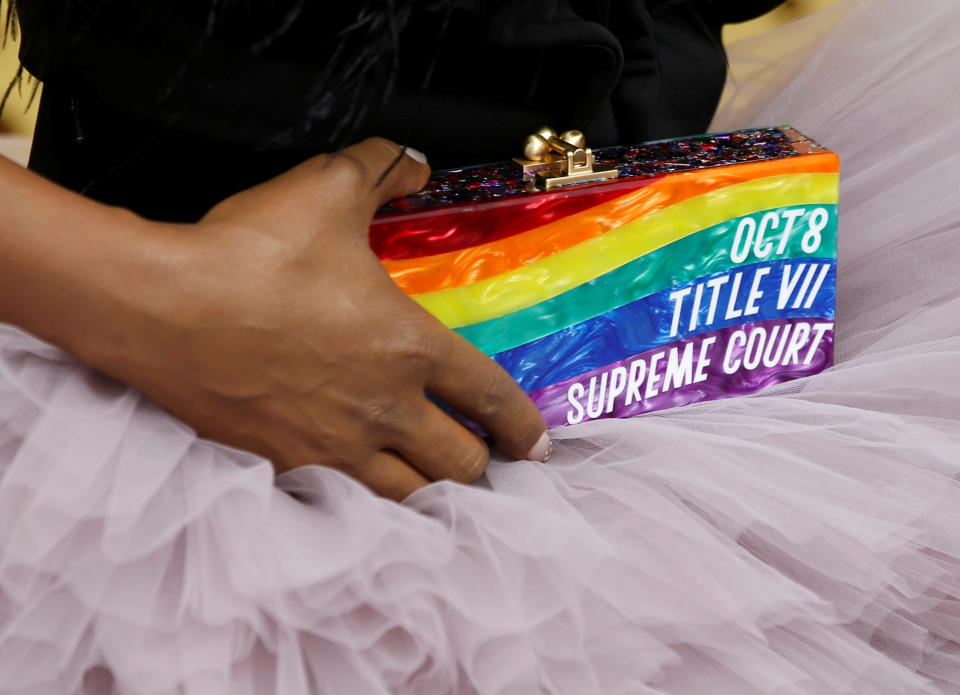Laverne Cox calls SCOTUS discrimination ruling the ‘most consequential’ in her lifetime
Laverne Cox is speaking out ahead of the Supreme Court deciding on protections for LGBTQ employees.
On Tuesday, the Supreme Court is hearing three cases on whether it’s legal to fire workers because of their sexual orientation or gender identity. It’s being viewed as bigger than the 2015 ruling on marriage equality because, while gay people can now legally marry, employment discrimination is still not clearly prohibited.

The Orange Is the New Black star and LGBTQ advocate, who is transgender, has been calling attention to today’s sessions for some time now, including at the Emmys where she carried a rainbow clutch that said “October 8” and “Title VII,” which is the part of the 1964 Civil Rights Act that bars discrimination "because of sex," or "on the basis of sex" — but not because of “sexual orientation” or “gender identity.” And, today, she joined activists on the steps of the Supreme Court to add her voice.
Speaking to the media outside the courthouse, Cox applauded the “everyday people” in the three cases who stood up and said, “We will not take this kind of discrimination.” And she urged, “Every single one of you out there can stand up and make a difference.”
LIVE: Laverne Cox joins LGBTQ activists on steps of Supreme Court. https://t.co/9UzH7y2Lvd
— ABC News Politics (@ABCPolitics) October 8, 2019
In a sit-down with ABC News, Cox suggested that the upcoming hearing is “probably the most consequential case for LBGTQ+ civil rights that the Supreme Court will hear in my lifetime.”
She went on to say that the "because of sex" or "on the basis of sex" terminology in the 1964 Civil Rights Act should cover sexual orientation. “If you discriminate against a trans person because they are transgender, that is de facto discrimination on the basis of sex,” she said.
Cox added that when “our government sanctions discrimination against us, it’s giving everyone in the country also permission to discriminate against us.”
And in another interview with the website TooFab, she said, "This case has huge implications not only for the LGBTQ+ community but for women's rights in employment." She added, "Everyone should be aware that right now, there are people who oppose LGBTQ people being protected from discrimination in employment. So everyone should be aware of that and presidential candidates should be talking about that."

The three cases the Supreme Court judges will hear involve alleged workplace discrimination. In Altitude Express v. Zarda, a skydiving instructor claimed he was fired because he was gay. In Bostock v. Clayton County, a Georgia county employee made the same claim. And in Harris Funeral Homes v. EEOC, a trans woman was fired by a funeral home based on her gender identity after telling her employer her intention to transition.
Read more from Yahoo Entertainment:
Ellen DeGeneres responds to criticism over sitting with ‘friend’ George W. Bush at Cowboys game
Adam Levine on leaving 'The Voice': I 'miss it, but I also don't miss how much I had to work'
Jeffrey Dean Morgan and Hilarie Burton announce they're married in supersweet posts on Instagram
Want daily pop culture news delivered to your inbox? Sign up here for Yahoo Entertainment & Lifestyle’s newsletter.


